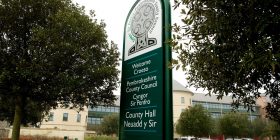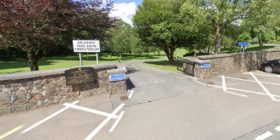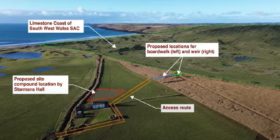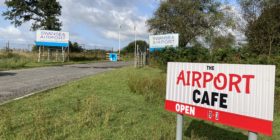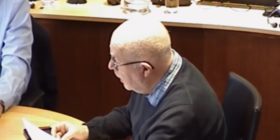The Resilience Of Wales’s Natural Resources Is Vital For A Better Life

Investing in our natural resources and making our ecosystems more resilient is vital to provide a better life for people and wildlife, according to a landmark report published today by Natural Resources Wales.
The State of Natural Resources Report (SoNaRR), the first report of its kind and the first statutory product coming out of the Environment Act, makes a direct link between the condition of our natural resources – our air, soil, water and the biodiversity that underpins them – and the impacts on people’s health, economic prosperity and social wellbeing.
It also looks at the issues facing our natural habitats of important and iconic wildlife species to better understand the worrying decline in biodiversity.
The report highlights that policy and decision-makers across the public sector need to start considering the key risks to natural resources and the benefits that they provide, in all that they do.
Emyr Roberts, Chief Executive of Natural Resources Wales, said:
“Our environment and natural resources provide us with our most basic needs – the air we breathe, the water we drink and the food we eat. It provides energy, creates economic activity and improves our health and wellbeing.
“It is also a home to fantastic wildlife which has, for too long, been under threat and is declining.
“In order for our natural resources to continue to provide for us and be a place for wildlife to thrive, we need to better understand the consequences of our actions and look after them better.
“We do not take into account the full value of the benefits we receive from our natural resources and ecosystems when we make decisions. As a result, our actions as a society are not only lowering our own quality of life, but also that of future generations, whilst creating an unprecedented decline in the wildlife around us.
“We want to work with all our partners across the public sector and beyond, to address this. We owe it to the next generations to get this right.”
Welcoming the report, the Cabinet Secretary for the Environment and Rural Affairs, Lesley Griffiths said:
“The State of Natural Resources Report represents a major step forward in applying our world-leading legislation. As the first product of our Environment Act, it provides a vital national evidence base for collaborative action to tackle the issues and challenges facing our natural resources and ecosystems, ensuring they continue to deliver for the prosperity and well-being of Wales”
The report highlights seven areas that offer the greatest opportunity for dealing with the challenges and risks – and therefore contributing to Wales’s well-being goals.
- Greening our urban areas – building more green spaces into our urban areas would: improve connectivity within and between ecosystems; help with water filtration and improving water quality; reduce surface water flooding; create places for health and recreation; improve community cohesion; and help tackle health inequalities and poor air quality.
- Increasing woodland cover – creating more woodland and bringing existing woodland into more sustainable management would: help increase diversity and connectivity of woodlands (making them more resilient to disease and better for wildlife, for example); increase woodland resource; provide building materials and fuel; help reduce flood risk; help store carbon to tackle climate change; and provide recreation opportunities to improve health and happiness.
- Managing our coastline more effectively – managing our coastline more effectively would: bring more benefits to those that live near it through tourism and employment; help manage the rising threat of coastal flooding due to sea level rises, through managed realignment; support coastal habitats and marine life.
- Restoring our floodplains – maintaining, enhancing and restoring our floodplains would improve rivers’ capacity to deal with low and high flows; reduce flood risk; improve water quality; and support recreation and economic activity.
- Better soil and land management – improving how we manage soil would: safeguard future food production; support habitats for wildlife; reduce costs of water treatment.
- Restoring peatland and our uplands would: safeguard carbon stores to minimise the effects of climate change; improve habitats for species that depend on them; help reduce flood risk.
- Managing marine ecosystems – integrated management of marine ecosystems through a plan-led system would: facilitate better understanding of the benefits of marine natural resources and optimise their use.
Emyr Roberts continues:
“SoNaRR is the start of the journey. By working together, we can improve our understanding of what we all need to do to confront the challenges such as climate change and biodiversity decline, so that people and nature can thrive.”
Spotted something? Got a story? Email News@News.Wales





